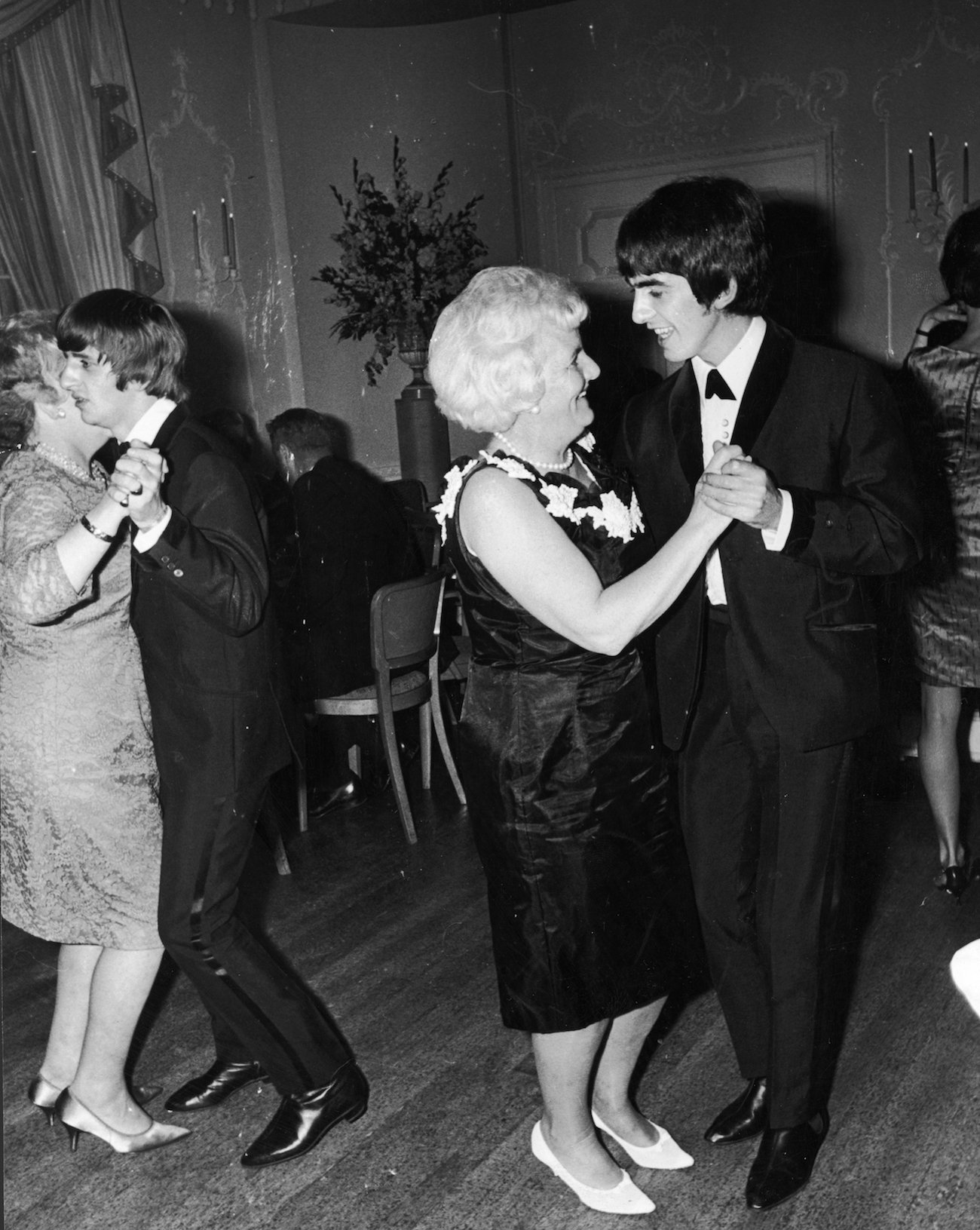The Heartbreaking Song George Harrison Wrote While His Mother Died
George Harrison was very close with his mother, Louise. She supported him when the rest of George’s family were skeptical about his career choice.
She bought him his first guitar and cheered him on when The Beatles became successful. Louise even entertained some of George’s most avid fans in her home and had a five-year-long correspondence with one.
So, it’s only natural that George was beside himself when she became ill in 1970. And when a musician’s emotions run high, no matter what they are, we all know what happens: they write songs.

George Harrison wrote ‘Deep Blue’ while his mother was dying
In his 1980 memoir, I Me Mine, George wrote that “Deep Blue” came to him when his mother was very ill and dying.
“I wrote ‘Deep Blue’ during the making of the All Things Must Pass LP,” George wrote. “It’s a bit obscure as it was only the ‘B-side’ of the ‘Bangla Desh’ single and never appeared on any album.
“It was written during the year my mother was very ill, and dying, and after going in the hospitals over and over again; it’s that smell and the whole atmosphere of doom that’s in those hospitals.
“And that was that; when you stand and watch tired bodies full of sickness and pain it shows you how helpless you really are when you get down to the truth. It hurts: one’s inability to cure all ills.”
Along with songs like “So Sad,” which George wrote about breaking up with his first wife, Pattie Boyd, and “Isn’t It A Pity,” “Deep Blue” is one of George’s saddest songs.
It encapsulates George’s grief completely with lyrics like: “When sunshine is not enough to make me feel bright/ It’s got me suffering in the darkness/ That’s so easy come by on the roadside/ Of one long lifetime/ It’s got me deep blue/ You know I’m deep blue.
“When you stand there, watch tired bodies/ Full of sickness and pain/ To show you just how helpless you really are/ When you get down to the truth it hurts me/ When I think of the life I’m living/ Pray God help me, give me your light/ So I can love you and understand this repetition/ That keeps me here feeling deep blue.”
George dealt with a lot while making ‘All Things Must Pass’
For years, George’s son, Dhani, worked tirelessly to remaster All Things Must Pass for its 50th-anniversary reissue. In the process, Dhani realized what was going on with his father in 1970. Dhani said it was a “very dualistic” time in George’s life.
He’d just exited one of the biggest bands in the world and was having marital problems with Boyd. To top it all off, Louise died during the recording sessions.
Still, this was a deeply creative period for George. He was becoming more and more spiritual as well. The ex-Beatle knew what he wanted, and he could carry it out for the first time in his life.
“‘All Things Must Pass’ is coming from a time in George’s life that is very dualistic,” Dhani told Guitar World. “It’s very dark, yet some of it expresses some of the most exalted states of clarity you can have. And somewhere in the middle is that whole experience and that whole record.”
Dhani told Esquire that he wanted fans to realize what George went through while making the album.
“I’m really trying to draw everyone into the feeling of what it must have been like for him to start off at 27, renovating a house that took him the rest of his life, and at the same time, his band had broken up, he had Hare Krishnas living here, he was separating from his wife, his mother passed away during the making the record—it was a lot of really spiritual moments for my dad with this record,” Dhani said.
The ex-Beatle was afraid of his mother dying after John Lennon’s mother died in 1958
In 1958, John Lennon’s mother, Julia, was struck by a car and died. It was George’s first encounter with death, and it affected him greatly.
According to Joshua Greene’s Here Comes the Sun: The Spiritual and Musical Journey of George Harrison, George was so “shook” that he started to get scared about his own mother.
“George was terrified that I was going to die next,” Louise said in Greene’s book. “He’d watch me carefully all the time. I told him not to be so silly. I wasn’t going to die.”
George’s reaction to Julia’s death is understandable. He’d never experienced anything like it before. He passed along his condolences to John and his family, but it still felt strange. It probably felt even weirder when Louise died in 1970.
Nothing could have prepared George for that. However, George had his spirituality and his views of death to help him in his grief.


